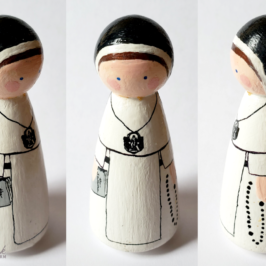There seems, in these latter days, a growing sense that democracy as it’s currently being peddled can neither account for nor provide the freedom it promises. How free, really, are our elections? Do delegates truly consider the popular vote? Are WWE music and strobe lights the best way to introduce candidates for the land’s highest office? To what extent are we — even we who attempt to remain objectively unbiased and critically informed — deceived and manipulated by the agency (read “money” or “power”) of a select ascendency who dominate public opinion and news cycles and Twitter feeds? Have we not seen the rise of a new oligarchy, made up of the few people and pundits and politicians and tenured professors who decide what is modern and progressive, what somebody enlightened and educated must think, and — as such — what ought to be regarded as politically correct or important or worthy of consideration?
Under the banner of freedom, this oligarchy espouses a new set of Commandments, forged more concretely in ballot measures and mandates than in stone, and dictated to the masses from a mountaintop both inaccessible and incomprehensible to the farmer or the teacher or the stay-at-home-mother or anyone else who seeks to live a life of simplicity, fiscal moderation, subsidiarity, and peace. Anyone who gets in the way of the oligarchs is an enemy of freedom because he is preventing freedom of expression. Anyone who seeks truth in Christian tradition — whether biblical, theological, or philosophical — rather than in the empirical sciences is labeled a bourgeois, fundamentalist bigot; common sense laws passed for the sake of the common good are the stuff of the ignorant, the uneducated, and those who,“if they only understood,” would immediately shift position and see the light.
We’re all quite fed up with the elitist presumption that only some are capable of authentic reasoning, and that they — who know best — must stand as advocates for the unenlightened. And in addition, it’s clear that political parties and interest groups can easily, and often viciously, impose themselves as the only legitimate representatives of progress and right thinking. Even so, the elite class have — through force and false promises — seduced the media industry who, in turn, have mastered for our mass consumption the modern form of bread and circuses: instant, endless, crass, banal, vapid, monolithic entertainment, which dulls our reason even as it piques our pleasure. Of course, we fail to recognize our own enslavement to such hollow forms of titillation, deeming ourselves far too sophisticated to be so duped.
And what about the way public opinion and truth itself are shaped by those who can no longer distinguish between the two? Who can doubt the power of lobbyists, activists, “social justice” warriors (a term stolen from the Church and bastardized by the same people who ease their consciences by joining hashtag campaigns) and the waifish celebrity class, whose dirty hands and dirty money raise picket signs and clenched fists and civil suits, even as they redefine and reinvent words and phrases and whole concepts, both ignorant of and hostile to the patrimony of the past?
Is this system of representation really a system of freedom at all? In the wake of a corrupt coalition of fanatical forces and the political fallout left behind after months of ideological and narcissistic pimping for pennies and power, the formerly laudable aim of government for the people has become laughable: for the desire of the vicious to dominate denies the true possibility of freedom for those who would appreciate freedom the most and exploit it the least.
The postmodern democratic project has failed to deliver the unalloyed pleasure and possibilities of freedom it guaranteed. Even so, the radical proposition of an unchecked liberal democracy has not lost its appeal: the demand for freedom grows ever stronger. Having realized however — even if only subconsciously — the true limitations of democracy thus conceived, absolute autonomy becomes the only viable freedom possible. Law, order, tradition and institution are words set in opposition to this possibility. People are no longer satisfied with the freedom offered by an ordered society, and laws cannot be reformed sufficiently to meet freedom’s demands. As such, even the very foundations upon which positive laws are built are being called into question.
In the end however, the demands of a life lived according to the absolute mandate of total freedom can only be imposed upon the masses in a dictatorial fashion by the self-same oligarchs of progress, who themselves determine what progress entails and what freedom is for. But freedom imposed does not true freedom make; nor does freedom without limits. Freedom without limits amounts to man’s quest for meaning where meaning can be neither forged nor ever truly found. Nor are progress and change always unqualified goods in themselves, immune to scrutiny. Whether progress is good depends on whether it makes people good, fully human. True freedom is freedom-for-something. And that something can be neither arbitrary nor determined from without. It cannot be captured in a catch-phrase, and it cannot be secured by super delegates. True freedom must relate to the truth and correspond to that which makes us to be what we are.
Only the truth makes us free.









Leave a Reply